Trigger Warning: This article mentions sexual assault
Spoiler alert: This is not a review. This article discusses the Malayalam movie B 32 Muthal 44 Vare and how the film depicts queer persons and queer relationships.
Shruthi Sharanyam’s directorial debut, B 32 Muthal 44 Vare is a compelling example of how the female gaze in cinema is necessary for gender-sensitive portrays of the perils of navigating the world as an AFAB (Assigned Female at Birth) person, especially when it comes to gender-specific issues like body politics.
It examines the rarely acknowledged role of breasts as the root of the outlook of body image perception amongst AFAB people, ranging from dysphoria and low self-esteem to freedom and liberation. This movie also shows the ways in which such issues can stem from both internalisation and from external sources and draws out arcs where the characters come to terms with the former despite the latter.
Serendipitously, the show I booked my ticket for turned out to be a special screening, where members of the cast and crew came in for an interactive Q&A session after.
A movie for the masses
In just two hours, the film, B 32 Muthal 44 Vare seamlessly weaves through the lives of five women and one trans man, and how their breasts affect their day-to-day lives.
The film first introduces us to the character Ziya, a trans man, who wears binders every day to combat his gender dysphoria. Malini, a breast cancer survivor who underwent a double mastectomy and a round of chemotherapy, struggles with her alopecia and body image and feels troubled by the lingering feeling that her husband, Vivek, can’t see her the same anymore. Iman, who works in the hospitality field, feels belittled when her boss Leena alludes to her small breasts as the reason for the former being overlooked for a promotion she was counting on; she resorts to cheap but unsafe ways to increase her breast size, like the use of unauthorised drugs, despite the reassurances of her lover Ziya.
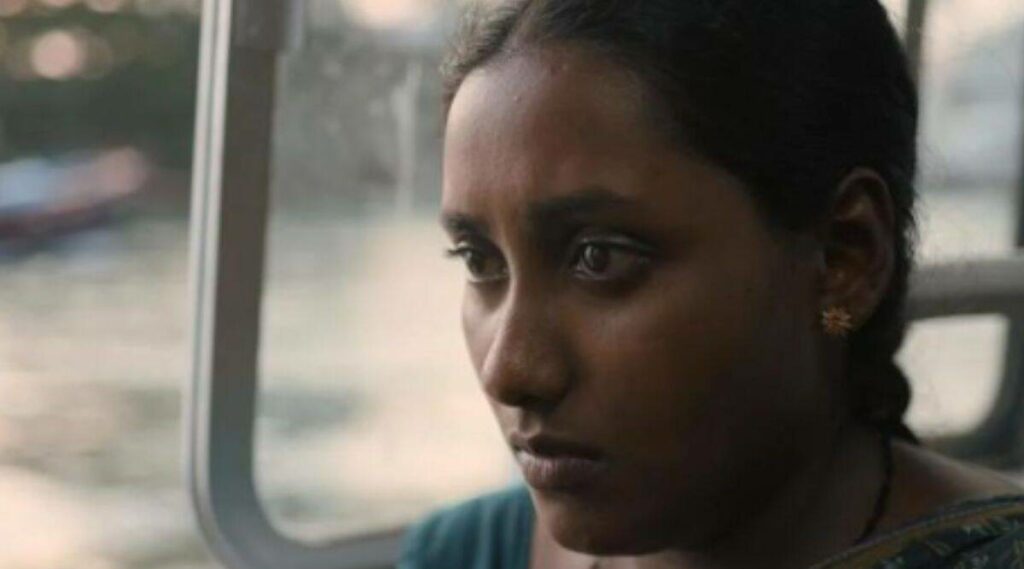
Nidhi is a single teen mother who struggles with her lactating breasts which are hard to hide in school where she is a student in the eleventh grade; her parents force her to express her breast milk, which is then bottle-fed to her infant by Nidhi’s mother, in an attempt to prevent Nidhi and her baby from bonding. Jaya, a domestic worker who works for menial pay in Malini’s and Nidhi’s houses and many more, struggles to make ends meet to take care of her family and her husband, Josep, who sustained a spinal injury following an accident; she is canvassed and coerced into doing a lingerie shoot by Vivek with the promise of a big pay that will help her pay off Josep’s debts.
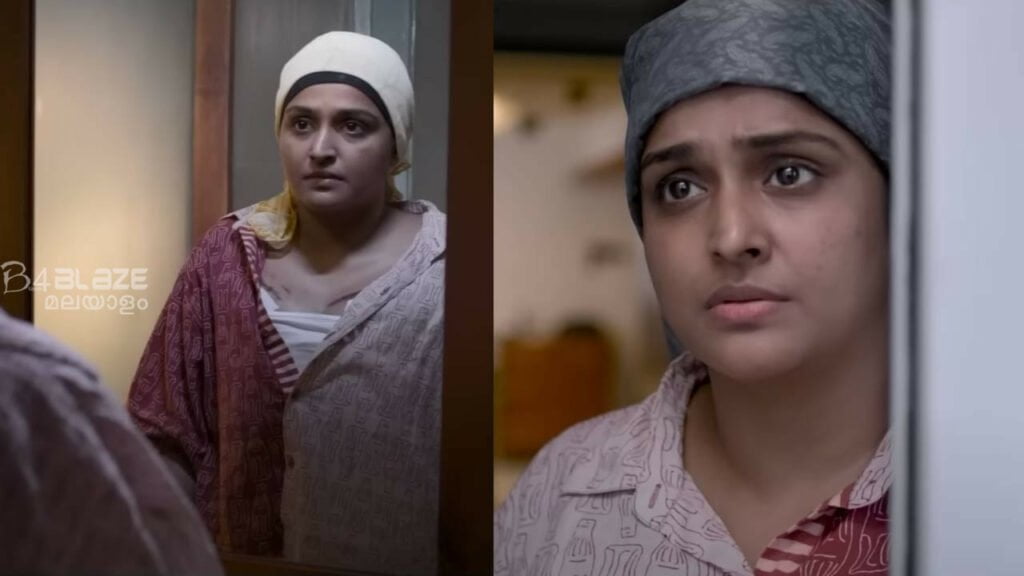
Rachel, Jaya’s neighbour, is a young aspiring actress who is sexually assaulted by an outwardly “feminist” film director when she auditions for his new project. In the backdrop of metropolitan Kochi, their lives are shown intertwining and unknowingly affecting one another.
The writer expertly develops and resolves six-character arcs in a multi-narrative form, without the storyline feeling hastened. An audience member asked the director whether she had considered any experimental forms for the film. Shruthi replied by saying that she believed, “politics should be accessible to the masses”, and that informed her choice of a form that the audience would be more familiar with.
Also Read: How Long Should We Wait For A Dark, Dalit Malayalam Film Heroine
The subtlety with which some microaggressions are portrayed gave the storytelling the rare dimension of being able to address more benevolent forms and agents of patriarchy. This can be seen in Malini’s apparently doting husband Vivek who cooks for his wife and measures the blood drains attached to her breasts, but gets emotionally distant, and later admits that it is because of the drastic change in her appearance caused by her medical treatments; Jaya’s husband Josep, who at first encourages her to take up the lingerie modelling gig to pay off his debts, afterwards blames her for their neighbours’ disapproval.
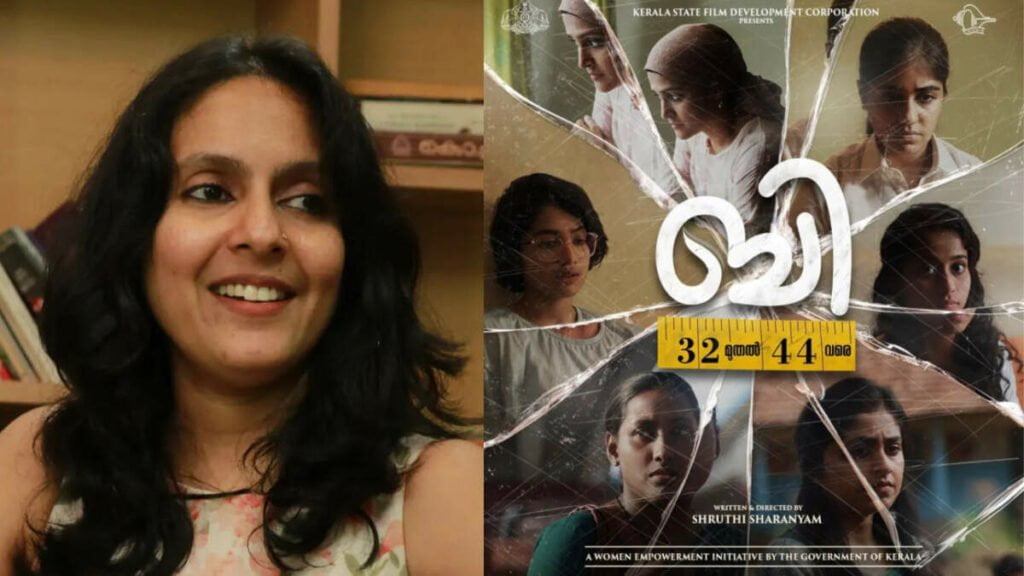
When a male audience member asked Shruthi why patriarchy wasn’t explicitly mentioned in the film, she replied by saying that she did not want the movie to border on sloganeering and that she has addressed elements of patriarchy that are perceptible to those who view characters like Vivek, Josep, and even Iman’s boss Leena through a critical lens. Ramya Nambeeshan, the actress who plays the role of Malini, added that the open communication between her character and Vivek, though strained, remains calm, and shows the person standing on the other side of the conversation in a humane light. Shruthi concluded by saying that she wanted to portray the grey areas occupied by the characters whose actions are informed by patriarchy.
The bad and the ugly
Full disclosure: I am but a simple Malayali lesbian, and one of the things I was most excited about was the little peak at the intimacy shared between Anarkali and Zarin’s characters, teased in the trailers. I had wanted to see the movie on a big screen because I wanted to see what could be one of the first mainstream portrayals of sapphic relationships in Malayalam cinema. However, Anarkali Marikar, a cis woman, played a trans man in the film B 32 Muthal 44 Vare. And that deflated my excitement like a shrinking balloon.

As a gender non-conforming person, I am a strong proponent of casting only trans actors to play trans characters. Trans actors have time and again voiced dissent against cis actors taking up trans roles. This has been an ongoing conversation in the mainstream media for a while now, granted, it is still a relatively new conversation in the context of Indian cinema. For instance, when Vijay Setupathi’s role in Super Deluxe (2019) received critical acclaim, many queer people were quick to bring up a discourse about a cis man playing a trans woman.
Some activists even link violence against trans people to such inaccurate representations. As actress Jen Richards, in the Netflix documentary Disclosure (2020), succinctly puts it: “Part of the reason that men end up killing trans women is out of fear that other men will think that they are gay for having been with trans women; their friends, the men whose judgement they fear, only know trans women from media and the people who are playing trans women are the men that they know. This doesn’t happen when a trans woman plays a trans woman… When you see these women off-screen still as women, it completely deflates the idea that they are somehow men in disguise.”
The question had been gnawing at me since Ziya first appeared on screen, so at the Q&A session, I asked Sruthi (Director): “Did you consider casting a gender non-confirming, or trans actor in the role of Ziya?” She admitted that this was a question that she had been anticipating. She went on to say that though she did look into casting a trans person, she couldn’t find anybody at that stage of transition, with that body type (because after all body politics is the central theme), from a Malayalam-speaking background, and with expertise in acting.
The question had been gnawing at me since Ziya first appeared on screen, so at the Q&A session, I asked Sruthi (Director): “Did you consider casting a gender non-confirming, or trans actor in the role of Ziya?” She admitted that this was a question that she had been anticipating. She went on to say that though she did look into casting a trans person, she couldn’t find anybody at that stage of transition, with that body type (because after all body politics is the central theme), from a Malayalam-speaking background, and with expertise in acting, so she ultimately approached Anarkali Marikar.
I found that answer unsatisfactory since I have come across several transmasculine people who are active on social media platforms and are waiting for their big break in acting. This shows how the visibility of trans actors amongst filmmakers is an issue that is yet to be addressed.
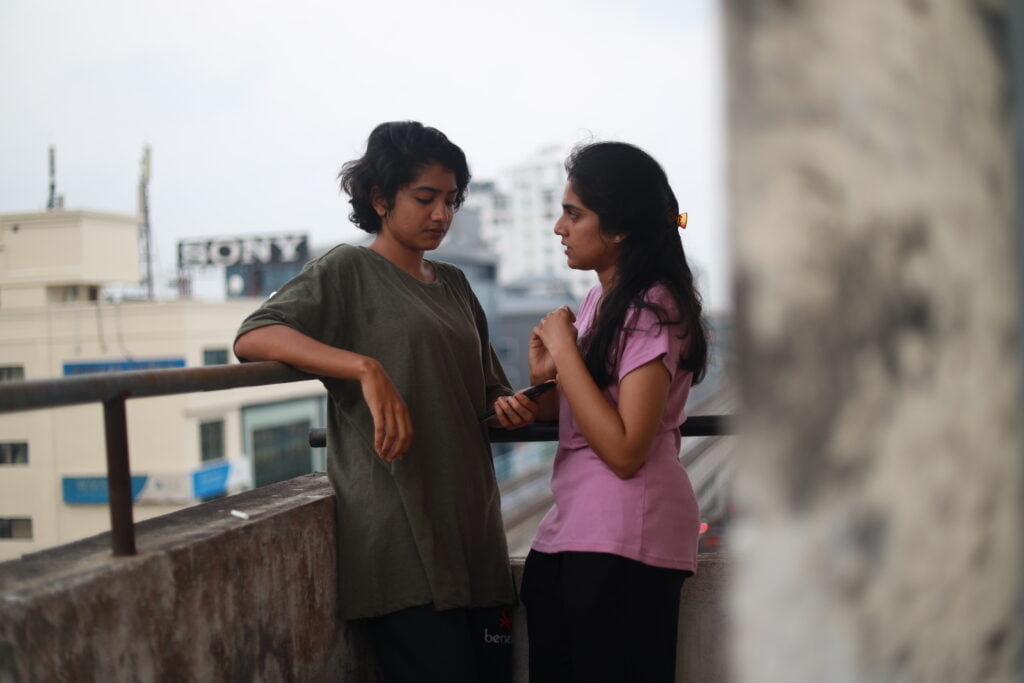
Another audience member pointed out that B 32 Muthal 44 Vare had the scope to address the intersectionality of factors such as culture, religion, caste, and class, yet fell short of doing so. To this, Shruthi responded by saying that she did not want to crowd the two-hour-long script and wanted to keep the focus on the main theme being body politics. She also said that she chose some of the characters’ names deliberately; for instance, Ziya and Iman are Muslim names, and it was implied that Jaya was from a Dalit background. However, these nuances may be lost on those who aren’t looking for them; in this way, the subtleties in the storytelling served as a double-edged sword.
Ziya from B 32 Muthal 44 Vare: What queer joy can be in Malayalam cinema
The discourse around Hollywood productions with queer representation has addressed the tendency of mainstream filmmakers to resort to making their queer characters suffer in order to gain sympathy from a predominantly cishet target audience. This includes the frustrating recurrence of tropes like “Bury Your Gays”, sometimes even in media that are consumed by mainly a queer audience.
In the opening scene of the movie, we see a schoolboy hitching a ride with Ziya asking, “Aren’t there surgeries to fix this problem?” To this, Ziya responds, “What ‘problem’?” It is impressive to see a rare instance of casual representation acknowledging that not all binary trans people opt to undergo gender-affirming surgeries. Seeing a transmasculine person in a Malayalam movie wearing a binder, removing it, and adjusting it, on a big screen felt like witnessing a historic moment of queer representation in Indian films.
The Hays Code era pattern of following displays of queer joy on screen with the character(s) suffering a tragic end, oftentimes even death, has unfortunately permeated into regional representations of queer characters. Thus far, almost all of the already scarce queer characters in Malayalam cinema have had to face a similar fate, as seen in Deshadanakili Karayarilla (1986), Sancharram (2004), and Moothon (2019).
While the casting of a cis actor to play Ziya remains problematic in B 32 Muthal 44 Vare, the way the character was represented is refreshing in this respect. Ziya’s character doesn’t have much of an arc, because, amongst all six of the main characters, he is the most self-assured. He isn’t put through a series of trials and tribulations to “deserve” happiness. Ziya is allowed to simply exist and be content as he is.
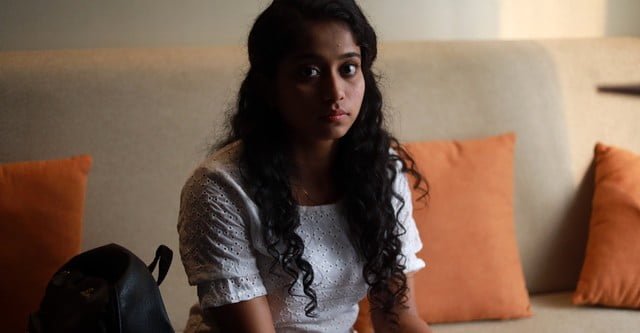
In the opening scene of the movie, we see a schoolboy hitching a ride with Ziya asking, “Aren’t there surgeries to fix this problem?” To this, Ziya responds, “What ‘problem’?” It is impressive to see a rare instance of casual representation in B 32 Muthal 44 Vare acknowledging that not all binary trans people opt to undergo gender-affirming surgeries. Seeing a transmasculine person in a Malayalam movie wearing a binder, removing it, and adjusting it, on a big screen felt like witnessing a historic moment of queer representation in Indian films.
Another radical scene in the movie shows the display of intimacy between Ziya, a trans man and Iman, a cis woman. The scene began with a tender touch of hands and a passionate kiss on the balcony and ended with them taking it in and continuing with Iman on a table, the kisses picking up pace and urgency. The scene fades to black, a device usually used to imply that the characters had sex. While an audience member referred to it as a “lesbian scene”, Shruthi was quick to correct her and say that it is in fact, a portrayal of a straight relationship, and that representations like these are important to normalise the distinction between gender, sex, and sexuality—terms that most people use interchangeably due to lack of awareness.
Ziya also stands out in the array of queer representations in Indian media for being a Muslim working-class trans man, in a relationship with a Muslim working-class cis woman, since we are used to seeing upper/middle class and upper caste queer representations, as seen in mainstream productions like Ek Ladki ko Dekha Toh Aisa Laga (2019), Shubh Mangal Zyada Saavdhan (2020), and Badhaai Do (2022).
Ziya also stands out in the array of queer representations in Indian media for being a Muslim working-class trans man, in a relationship with a Muslim working-class cis woman, since we are used to seeing upper/middle class and upper caste queer representations, as seen in mainstream productions like Ek Ladki ko Dekha Toh Aisa Laga (2019), Shubh Mangal Zyada Saavdhan (2020), and Badhaai Do (2022).
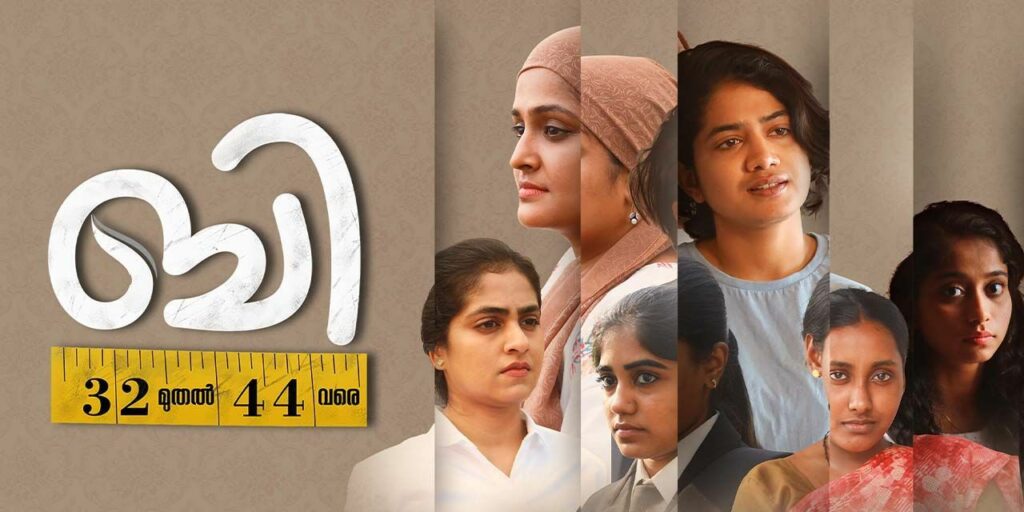
The character of Ziya is, thus, a noteworthy example of how a queer character can be represented in an empathetic light without turning their character arc into torture porn, and shows how queer joy can exist parallelly while addressing the realities of navigating society as a queer person.
The theatrical run that B 32 Muthal 44 Vare has had thus far is not a small feat considering the many challenges the project had to face from the get-go, from having a limited theatrical release, to online hate campaigns. Despite the challenges it faced, this movie is a signifier of what the Malayali audience is ready for. The success of movies like The Great Indian Kitchen (2021), and Jana Gana Mana (2022) in recent years show that the average Malayali audience likes to be challenged intellectually and ideologically. Mainstream filmmakers often underestimate how much the boundaries of Malayalam cinema can be pushed. Thus, B 32 Muthal 44 Vare represents the experience that the Malayali audience deserves but is deprived of.
Also Read: Kumbalangi Nights And The Progressive Turn In Malayalam Cinema
About the author(s)
Rhea F. (they/them) is a queer Malayali medical student, who has harboured a life-long love for all things music and literature. As a child of the internet, they fell into rabbit-holes of feminist discourse blogs, fandom
Tumblr, and longform biology and psychology articles as a tween, and never left. You can find them
wherever a microphone can be found, either speaking or singing into it, in the local coffee shop with
their uke in hand or engaged in deep conversations with their friends who they love more than life.
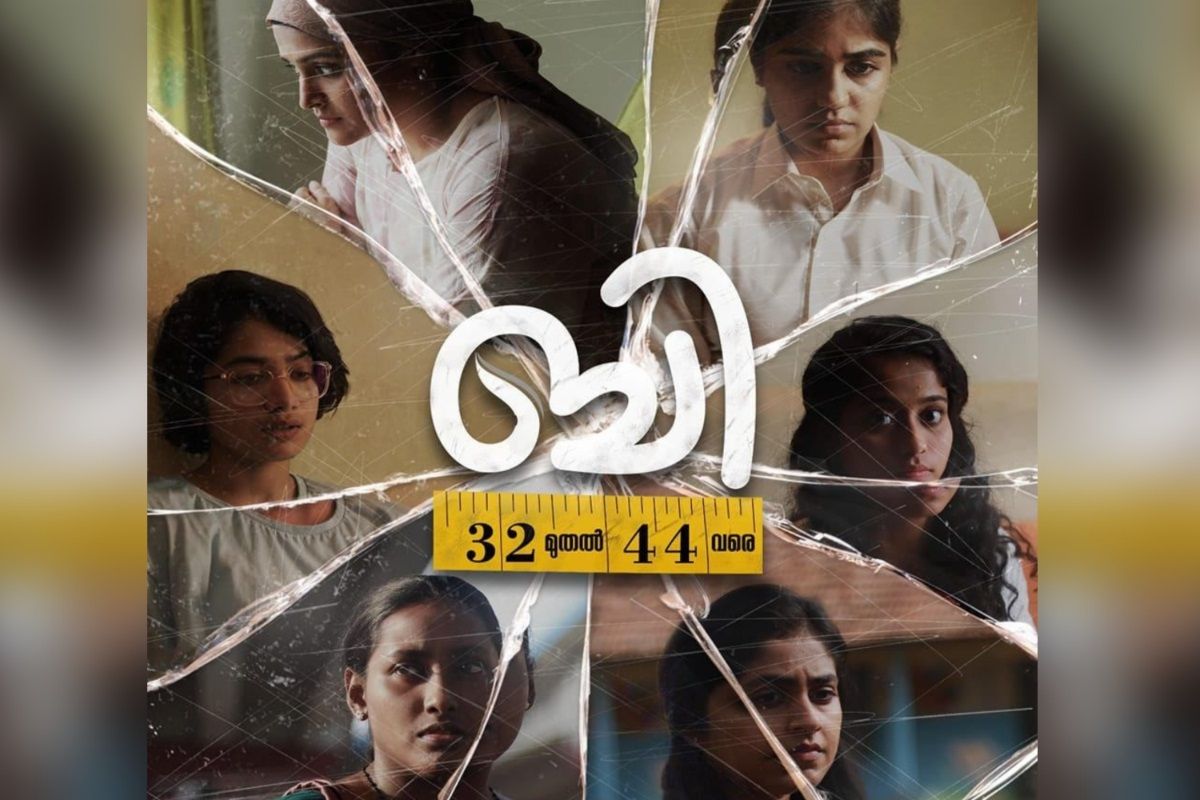


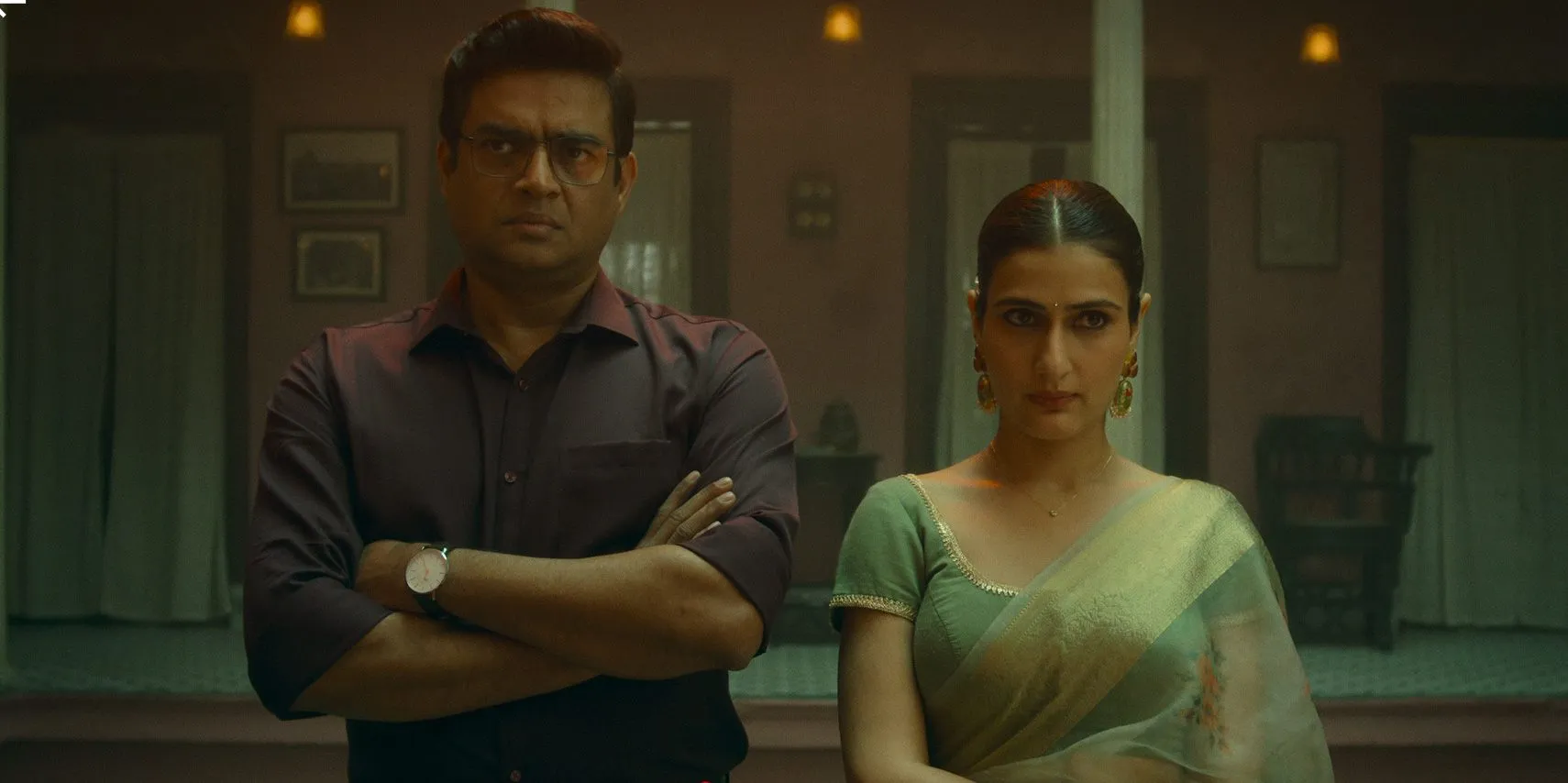


I have always liked Indian movies, especially their storylines are really touching, through this movie, I hope everyone should understand and support women more.